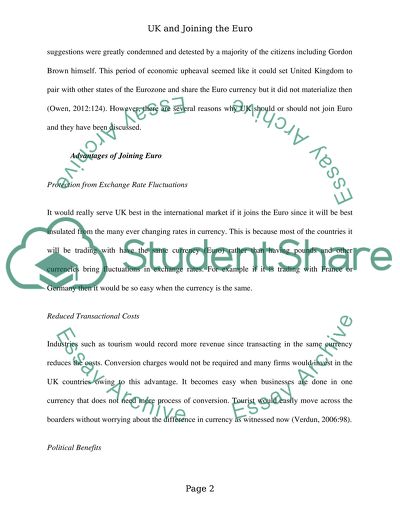Cite this document
(“Should the UK join the Euro Coursework Example | Topics and Well Written Essays - 1750 words”, n.d.)
Should the UK join the Euro Coursework Example | Topics and Well Written Essays - 1750 words. Retrieved from https://studentshare.org/macro-microeconomics/1673948-should-the-uk-join-the-euro
Should the UK join the Euro Coursework Example | Topics and Well Written Essays - 1750 words. Retrieved from https://studentshare.org/macro-microeconomics/1673948-should-the-uk-join-the-euro
(Should the UK Join the Euro Coursework Example | Topics and Well Written Essays - 1750 Words)
Should the UK Join the Euro Coursework Example | Topics and Well Written Essays - 1750 Words. https://studentshare.org/macro-microeconomics/1673948-should-the-uk-join-the-euro.
Should the UK Join the Euro Coursework Example | Topics and Well Written Essays - 1750 Words. https://studentshare.org/macro-microeconomics/1673948-should-the-uk-join-the-euro.
“Should the UK Join the Euro Coursework Example | Topics and Well Written Essays - 1750 Words”, n.d. https://studentshare.org/macro-microeconomics/1673948-should-the-uk-join-the-euro.


